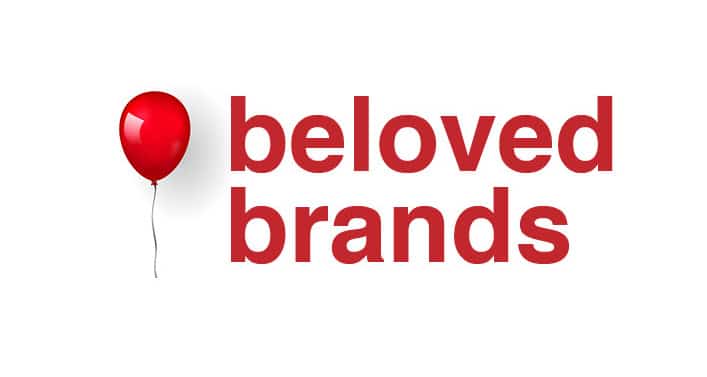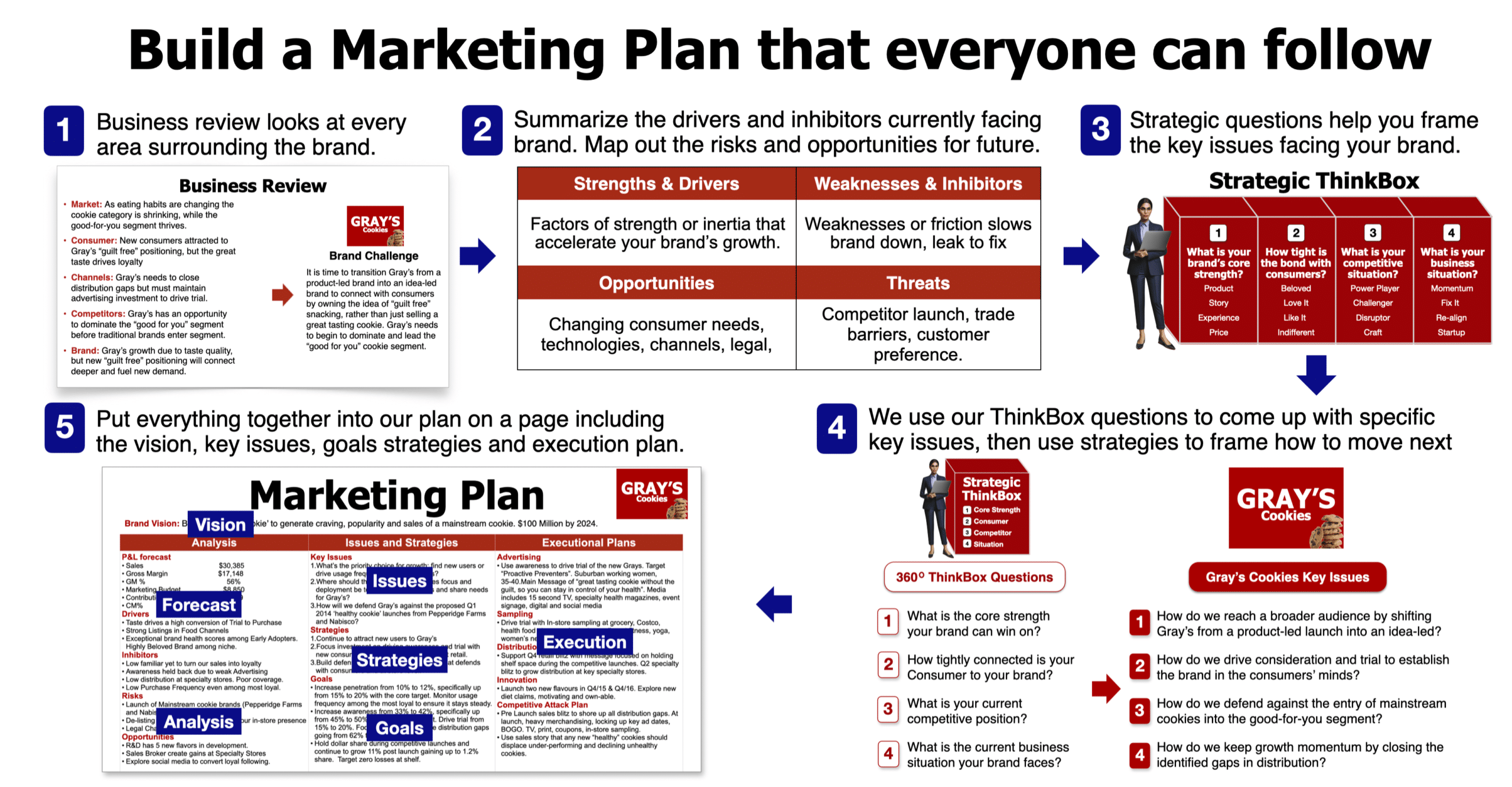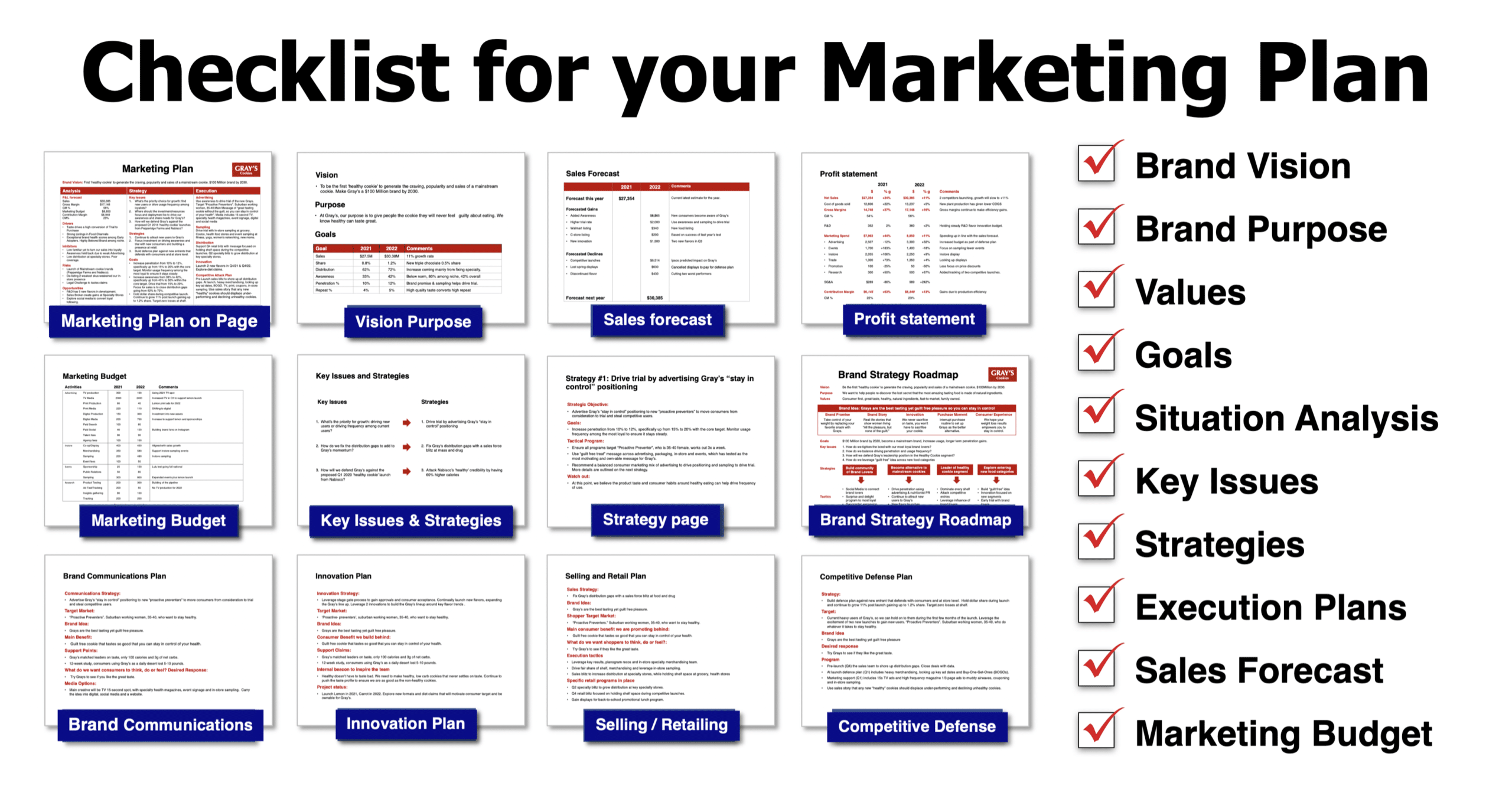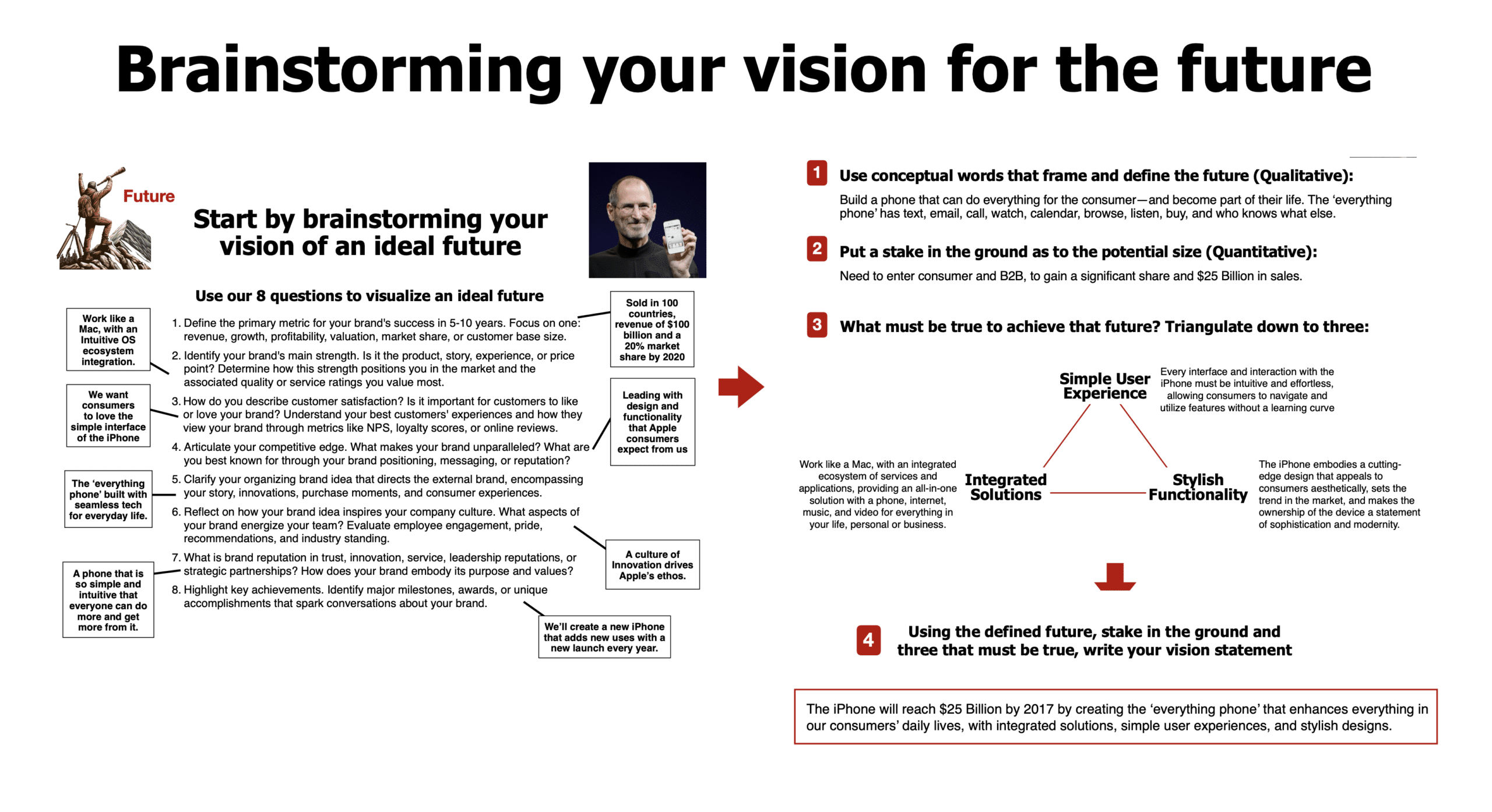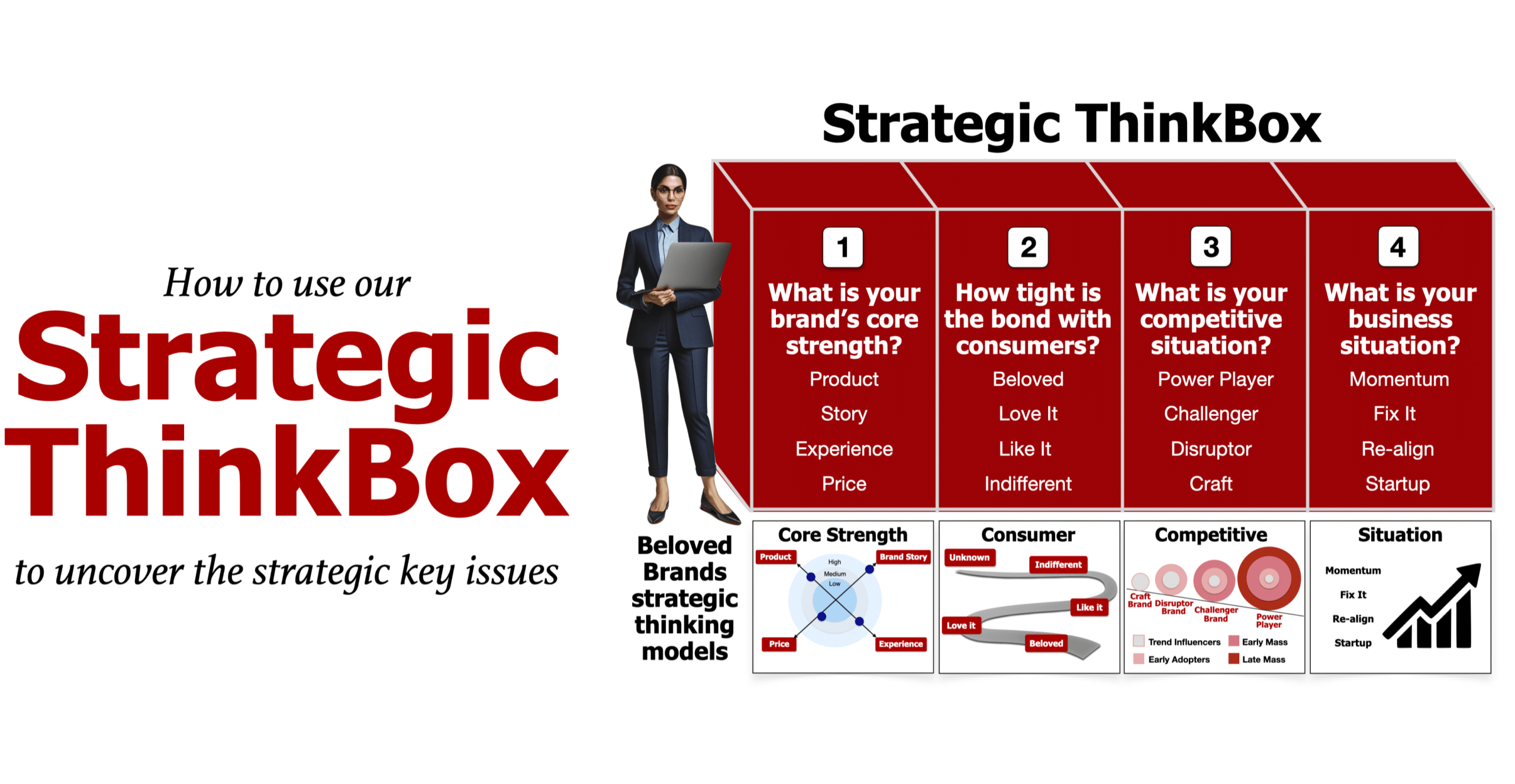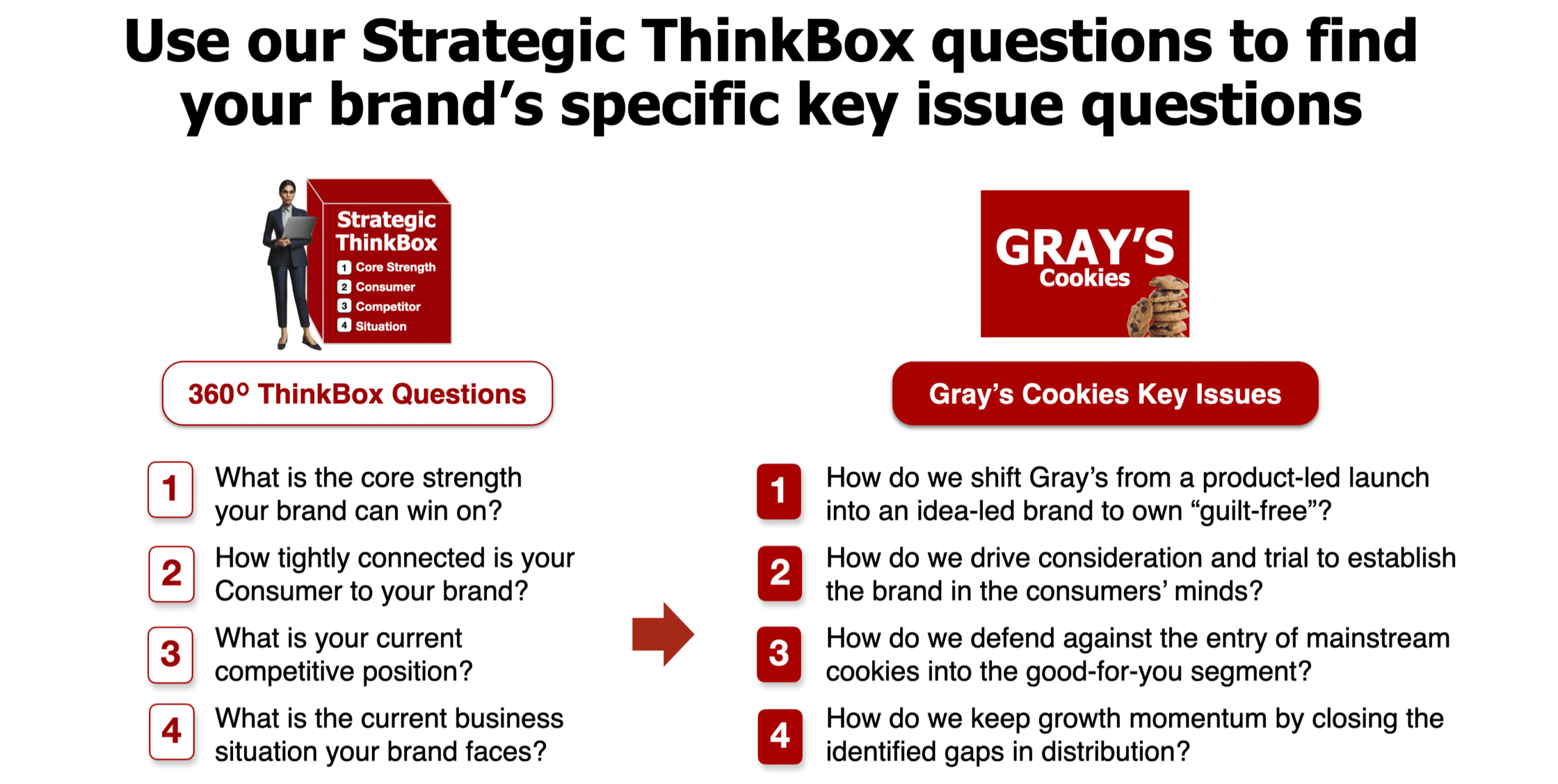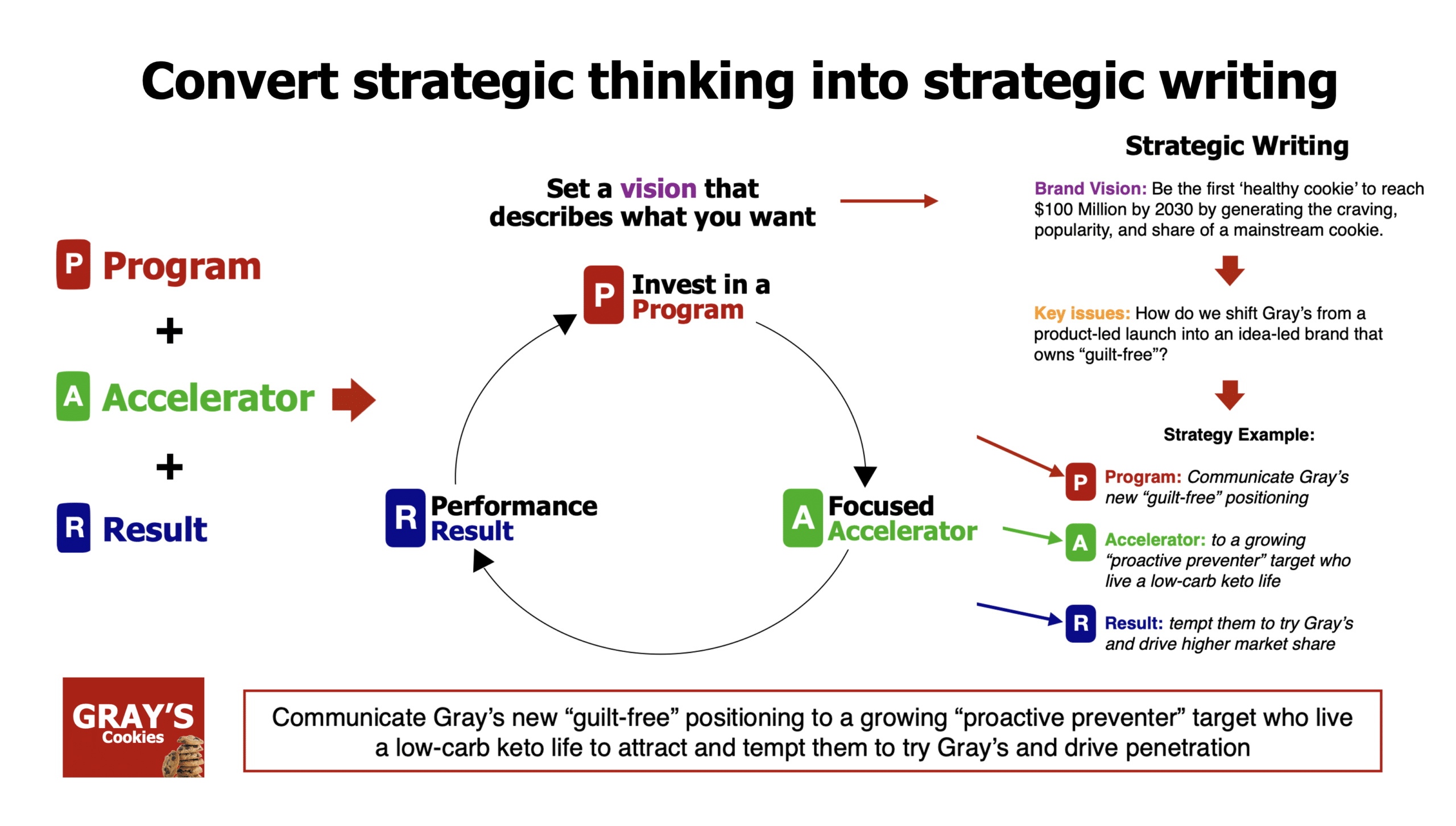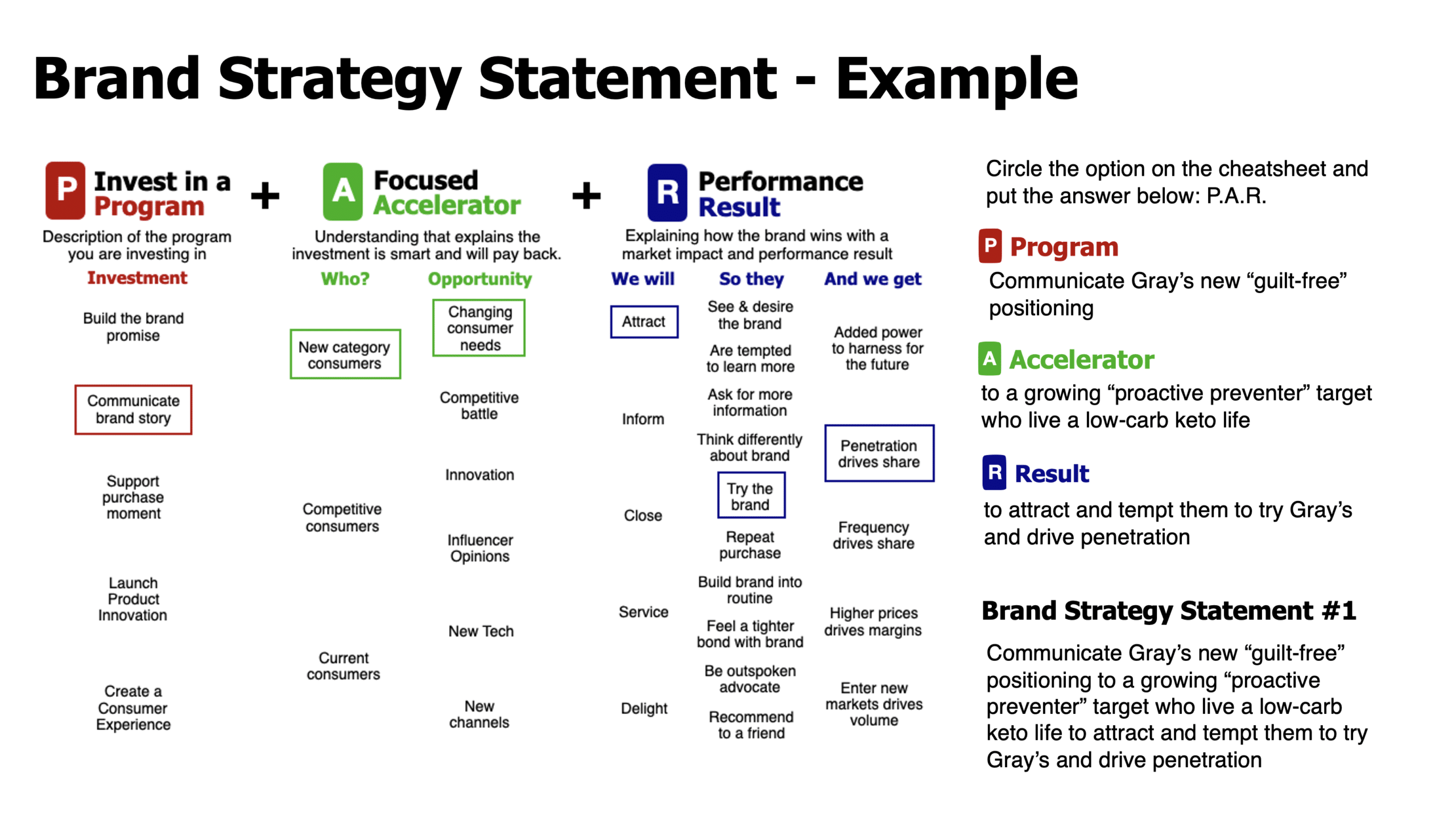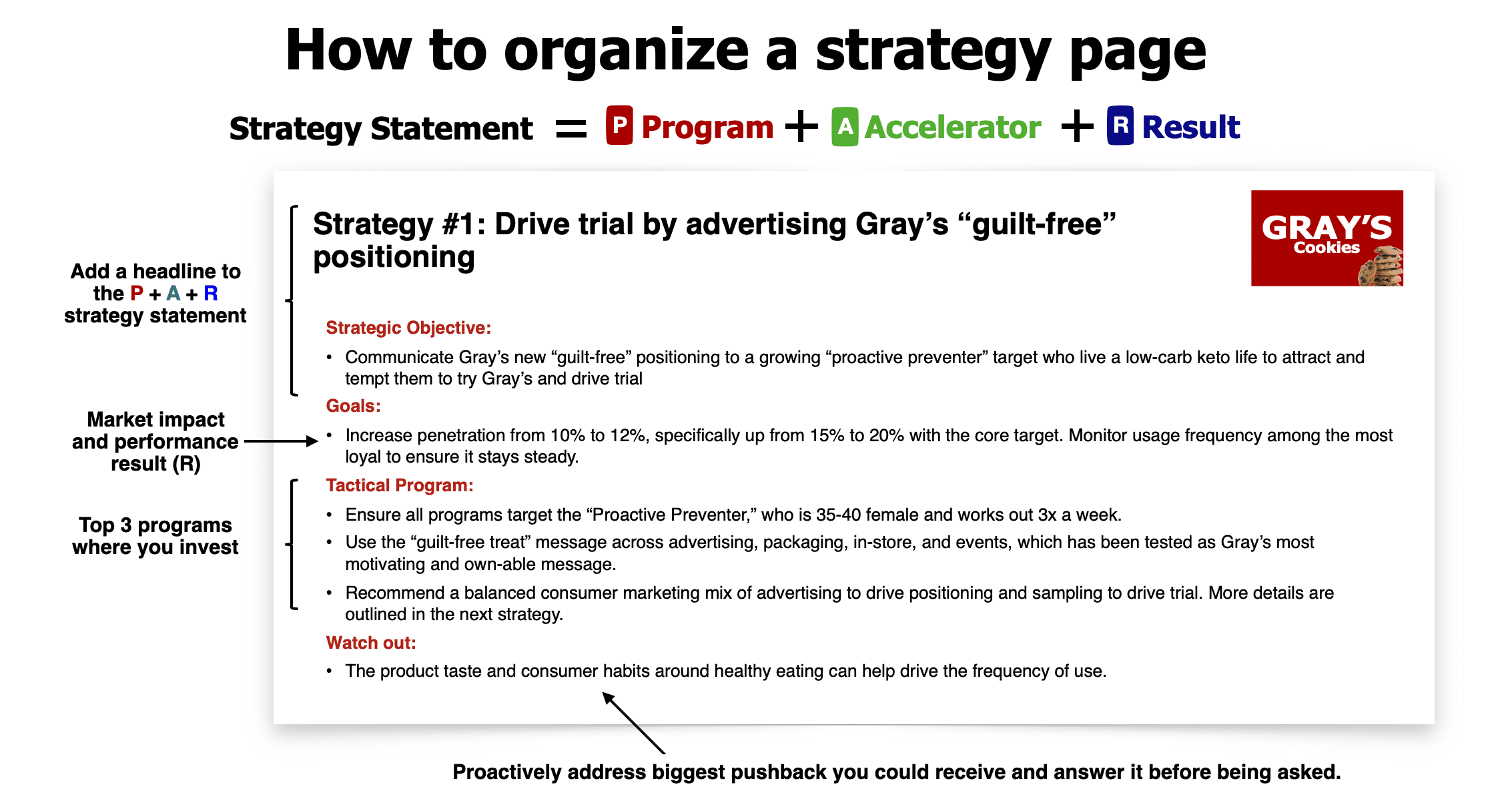Are you in the middle of writing a marketing plan presentation? Then, you are in the right place. In this post, you’ll find a detailed marketing plan template and numerous marketing plan examples to follow, making the writing process much easier. This marketing plan guide is based on my experience as a former VP of Marketing at J&J and my extensive marketing experience at Coke and General Mills. And, I’m willing to share every secret on how to write a marketing plan that your boss will approve.
As someone who’s climbed the corporate ladder and created and critiqued numerous marketing plans, I understand what your management team wants and what will get approved.

Table of Contents - How to write a Marketing Plan
Step-by-step process for how to write a Marketing Plan Presentation
Essentially, the marketing plan acts as a roadmap, guiding your marketing efforts and ensuring that every action you take aligns with your business goals. Furthermore, a marketing plan checklist is a handy tool that keeps you organized, focused, and accountable.
To illustrate, click on the diagram above to zoom in.
How to write a marketing plan - start with the basics by using our marketing plan checklist
A good plan starts with the vision and goals.
- Vision. “Where could we be?” Most importantly, the vision puts a stake in the ground that describes an ideal state for your future. It should last for five to 10 years to give everyone clear direction. Write your vision in a way that scares you a little and excites you a lot.
- Goals. “What will you achieve?” Specific measures include consumer behavioral changes, program metrics, in-market performance targets, financial results, or milestones on the pathway to the vision. Use goals to set up a brand dashboard or scoreboard.
Defining the purpose and values steers your people
- Purpose. “Why does your brand exist?” It’s the underlying personal motivation for why you do what you do. The purpose is a powerful way to connect with employees and consumers, giving your brand a soul.
- Values. “What do you stand for?” Your values should guide you and shape the organization’s standards, beliefs, behaviors, expectations, and motivations. A brand must consistently deliver each value.
Then, transform your analysis to key issues.
- Situation Analysis. “Where are we?” Summarize the drivers and inhibitors you currently face, as well as the threats and untapped opportunities in the future.
- Key Issues. “Why are we here?” Look at what is getting in your way of achieving your vision. Set up the issues as questions, using strategies to answer each issue.
Finally, answer your key issues with strategies, and tactics.
- Strategies. “How can we get there?” Look for market opportunities you see with consumers, competitors, or situations. Strategies provide clear marching orders that define your investment in strategic program, the focused opportunity you see, the desired market impact and performance result that benefits your business.
- Tactics. “What do we need to do?” Framed entirely by strategy, tactics turn into action plans with clear marching orders to your teams. Decide which activities to invest in to stay on track with your vision while delivering the highest return on investment (ROI) and highest return on effort (ROE) for your business.
Marketing Plan checklist
A checklist aids in fostering collaboration and communication within your team. Importantly, it provides a clear framework for writing a marketing plan for everyone involved, ensuring everyone is on the same page and working towards the same objectives.
To illustrate, click on the diagram above to zoom in on our Marketing Plan checklist.
Beloved Brands Marketing Training
The smarter your team, the better the results you will see!
As a marketing team leader, you know your team’s success is essential for your company’s growth. Our Beloved Brands Marketing Training gives your team the skills to make smarter strategic decisions, produce exceptional work, and drive business growth. They will learn to define brand positioning, write effective plans, improve brief writing, make informed execution decisions, and analyze their brand’s performance.
Invest in our Beloved Brands Marketing Training today and start seeing an immediate impact with smarter solutions, better work, and stronger results for your team.
🛠️ We build essential Marketing Skills
Our Beloved Brands Marketing Training will equip your marketing team with the essential marketing skills to meet your expectations, including brand analytics, strategic thinking, brand positioning, strategic planning, and marketing execution.
📈 Marketers will work on their own brand
We impact your marketing team’s on-the-job performance by ensuring your marketers apply every new tool, method, and skill directly to their brand.
🚀 Our marketing coaching is like having a VP in the room
Our hands-on coaching replicates real-world challenges, with your marketers experiencing the pressure and expectations they face in a boardroom
🌍 Custom-Tailored Marketing Training Programs
We provide specialized marketing training tailored to different business models, including Consumer, B2B, Retail, and Healthcare brands. Our industry-specific examples demonstrate how easily our tools work on a brand like the marketer is working on.
Ask us to make your marketing team smarter!
Brand Vision - what you want to achieve in the future
A well-written brand vision should be the ultimate end-in-mind achievement, which answers, “Where could we be?” Use these examples of brand vision statements to inspire you as you write your own vision statement. Maybe you will see something that feels familiar to what is in your mind or at least a structure for how you would write your own vision statement.
Let’s use the 2007 iPhone launch as an example.
Use conceptual words that frame and define the future (Qualitative).
- Steve Jobs wanted to build a phone that could do everything for the consumer—and become part of their life. He wanted to combine a phone, a computer, and an iPod. The iPhone would become the ‘everything phone’ with text, email, phone, watch, calendar, browser, music, and buy. And, who knows what else.
Put a stake in the ground for the potential size (Quantitative).
- Continuing with the iPhone, they needed to enter consumer and B2B to drive $25 billion in sales within ten years. That was an extremely ambitious stretch goal, given that Blackberry had yet to crack the $1 billion mark.
To illustrate, click on the diagram above to zoom in on how to come up with a vision statement.
What must be true for the iPhone to achieve that in the future?
Triangulate down to three:
- Apple knew they had to reach the masses to reach such a stretch goal. Blackberry mainly used its products for business executives. Apple’s iPod and Mac work taught them how to reach the masses. Here are the three elements that must be true for the iPhone to reach its vision:
Simple user experience:
- Every interface and interaction with the iPhone must be intuitive and effortless, allowing consumers to navigate and utilize features without a learning curve.
Integrated solution:
- They wanted the iPhone to work like the Mac, with an integrated ecosystem of services and applications. This provides an all-in-one solution with a phone, internet, music, and video for everything in your life, personal or business. They created Apps to serve as mini-software.
Stylish Functionality:
- To meet consumers’ expectations of an Apple product, the iPhone must embody a cutting-edge design that appeals to consumers aesthetically. This sets the trend in the market. Moreover, it makes the device’s ownership a statement of sophistication and modernity.
Putting everything together to create a vision statement.
Write your vision statement by putting everything together, using the defined future, stake in the ground, and three that must be true. The brand vision statement for the iPhone launch of 2007 was:
“The iPhone will reach $25 Billion by 2017 by creating the ‘everything phone’ that enhances everything in our consumers’ daily lives, with integrated solutions, simple user experiences, and stylish functionality.”
Video: Marketing in about 60 seconds -How to write the brand vision
To illustrate, click on the video above to see how to develop a vision statement.
Key Issues - what is in the way of achieving your vision
Our Strategic ThinkBox triggers deeper thinking.
As I created the Strategic ThinkBox, I made it so that each of the four questions uses a forced choice to make decisions, where you must focus on only one possible answer for each question.
- What is the core strength that will help your brand win?
- How tightly connected is your consumer to your brand?
- What is your current competitive position?
- What is the current business situation your brand faces?
Your brand’s core strength
- Think of your core strength as your brand’s superpower or secret sauce that separates you from other brands. Is it your product, brand story, consumer experience, or price? Your core strength steers your entire strategy, including the brand messages and the focus of your investment.
Consumer strategy
- Start by determining where your brand currently sits on the brand love curve, whether your brand is unknown, indifferent, like it, love it, or at the beloved stage. The goal is to tighten the bond with your consumer and move them from one stage to the next.
Competitive Strategy
- Regarding the competitive strategy, you must choose from one of four competitive situations in which your brand operates. The dominant leader in the category is the power players, who take a competitive defensive stance. The challenger brands have gained enough power to battle the market leader head-to-head. The disruptor brands have found a space so different they can pull consumers away from the significant category players. Craft brands aggressively go against the category with a niche target market and a niche consumer benefit. They are small and stay far away from the market leaders.
Situational strategy
- Understanding your brand health starts with looking at internal and external factors. Choose one of four potential situations: whether you keep the momentum going, face a business turnaround situation, realign everyone behind a strategy, or your brand is a start-up. Each situation leads to distinct strategies and leadership styles to deploy.
To illustrate, click on the diagram above to zoom in.
Our Beloved Brands playbooks will make you a smarter marketer
We will challenge you with new skills, methods, and tools for engaging with strategic thinking, brand positioning, brand plans, creative briefs, advertising decisions, product innovation, brand analytics, and brand finance. We have specific playbooks for consumer brands, B2B brands, and healthcare brands.

Choose the playbook that works for you
Marketing Plan Template - presentation that will impress your boss
Our Marketing Plan Template is available in a PowerPoint presentation
Introducing our marketing plan template that includes everything you need to effectively communicate your brand vision, goals, analytics, key issues, strategies, and execution plans.
For those learning how to write a marketing plan, using our template as a step-by-step guide will save you a ton of time, and certainly help you impress your boss.

Marketing Strategy Statements - what you will invest in
Strategy = Programs + Accelerator + Results
One of the biggest flaws in strategy is the failure to cascade it throughout the organization. The people who clap at the town hall meeting walk back to their desks in a state of confusion, wondering how the new strategies on the presentation slides impact their jobs.
I find it frustrating watching everyone overcomplicate strategy. They mistakenly think strategy requires more intellect, so they use big, vague words when smaller, specific words work better.
Let’s simplify strategy. In terms of how to write a marketing plan, explain what program you will invest in. Then, outline who you will focus on, backed by an underlying accelerator for why you think it will work. To simplify it, with each strategic program, you will do something that gets the consumer to do something that turns into an explainable result of what you get.
To illustrate, click on the diagram above to zoom in.
Build programs to deliver the vision
Investment in programs to deliver the strategy, whether you are building the brand promise, brand story, purchase moment, product innovation, or consumer experience, is important. These crystal-clear marching orders to the team leave no room for doubt, confusion, or hesitation. For example, the program for Gray’s Cookies is to “Communicate Gray’s new ‘Guilt Free’ positioning.”
Focused Accelerator
There is already a trend accelerator in the market that can accelerate your strategy. For example, Gray’s Cookie’s focused accelerator is “to a growing proactive preventer target who live a low-carb keto life.”
Performance Result
Drive a specific performance result linked to the market impact, making the brand more powerful or profitable. For example, the result is “to attract and tempt them to try Gray’s and drive higher market share.”
To illustrate, click on the diagram above to zoom in.
Do a brand strategy slide for each strategy
In terms of how to write a marketing plan, once you have crafted your marketing strategies, create a slide for each strategy in your presentation:
- First, include the strategic objective statement.
- Then, list the goals to measure the desired result of this strategy.
- Next, outline three tactical programs where resources will be invested.
- Finally, insert a “watch out statement” to address potential issues that could derail the strategy.
By following these guidelines, you can effectively develop and present a comprehensive brand strategy that drives your marketing plan and sets your brand on a path to success.
To illustrate, click on the diagram above to zoom in on a marketing plan strategy page.
Marketing Execution Plans - communication, innovation, in-store
When you are learning how to write a marketing plan, make sure that for each significant investment, you create a separate execution plan to ensure everyone has specific instructions for their function, eliminating any room for misinterpretation. Each strategic investment should have an execution plan, with most plans covering:
- Brand Communication
- Innovation
- Sales
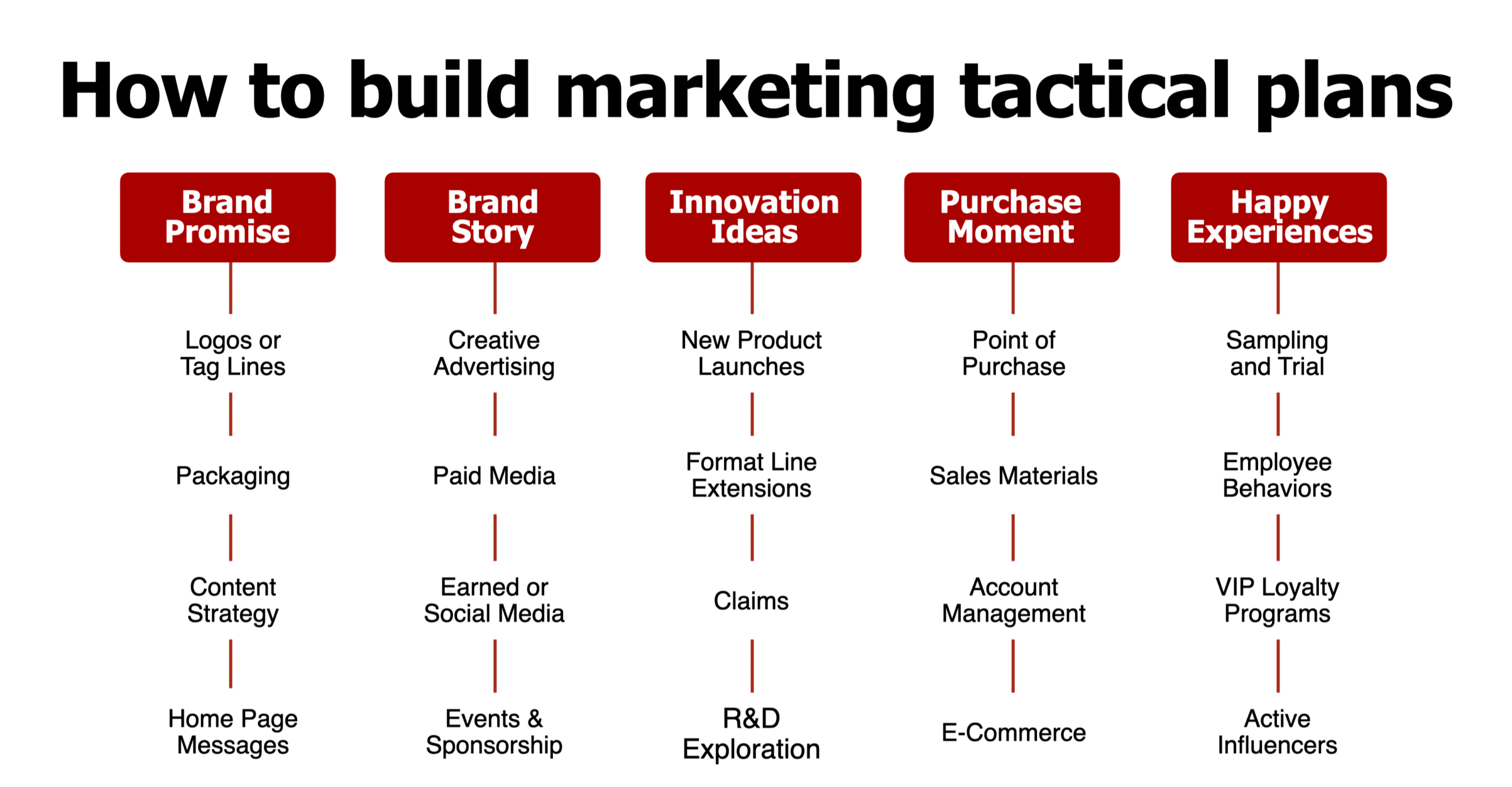
Frequently Asked Questions about the Marketing Plan
What is needed in a marketing plan? How to write a marketing plan.
First, every plan must have a vision that acts as the guiding line to chase. I like to have a main sales goal tied to that vision. Second, conduct a business review to focus on what’s driving growth and holding the brand back.
Third, use our Strategic ThinkBox to come up with key issue questions that are facing the brand. Then, dig in and build out the strategies that answer the issues.
Next, brainstorm tactics with your team. And build tactics, including brand communication, innovation, and sales or retail.
Last but not least, create goals and measure performance. A main sales goal can be tied to the vision and can drive parts of the plan, but they can also be used at the end to ensure you measure the strategies and tactics.
Why is a marketing plan important?
The main role of a plan is to gain the approval of your senior management team. Importantly, explain how you will use your resources to drive the growth of your brand. And the plan becomes the roadmap that everyone on your team will follow and help achieve your brand goals. An effective marketing plan will create the brand vision, purpose, key issues, strategies, and tactics.
What are common marketing plan mistakes?
First, the most common mistake I see in plans is when they present a messy story. That’s the reason you should have a good marketing plan template. It won’t go well if you are standing at the front of the room and the boss is confused.
Second, the other common mistake I see in marketing plans is trying to do too many things. Importantly, when you spread the limited resources across too many ideas, none of them will have enough resources to make a difference. You will always be disappointed in the results.
Third, another mistake I see is when parts of the team do not agree with. The brand leader must work to involve the other teams to ensure the team is aligned. Ensure you involve sales, operations, R&D, and your ad agency. And include all those who deliver on behalf of the brand.
Fourth, I have seen plan presentations get out of control. One year, a small brand had 127 slides. Crazy. You should have no more than 20 slides.
What is in a marketing plan?
If you are looking for an ideal outline for a marketing plan template, include a vision, purpose, goals, SWOT analysis, key issues, strategy statements, marketing communications plan, sales plan, new products plan, forecast, and financials. If you want training on how to write a marketing plan, explore our Marketing Training programs: Beloved Brands Marketing Training programs.
